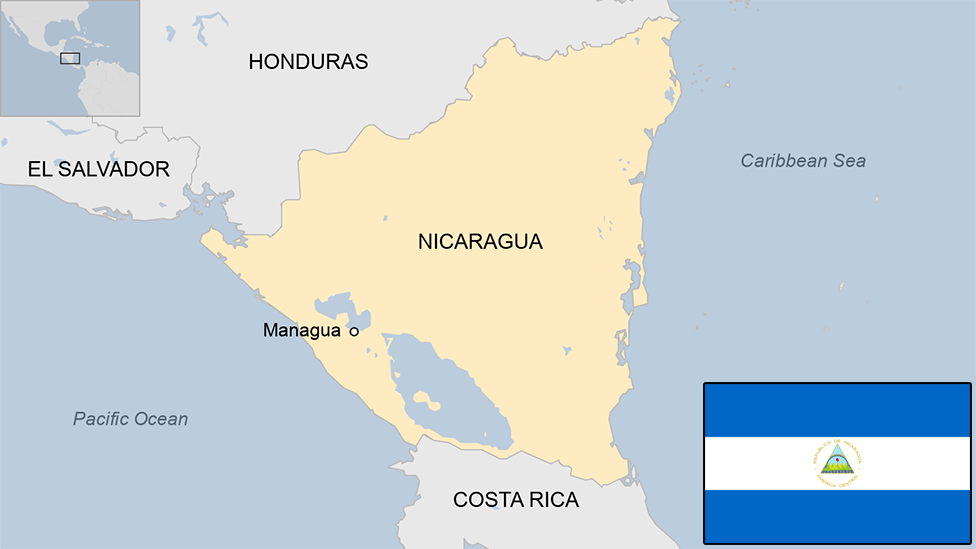Nicaragua polls: One-horse race for Daniel Ortega?
- Published
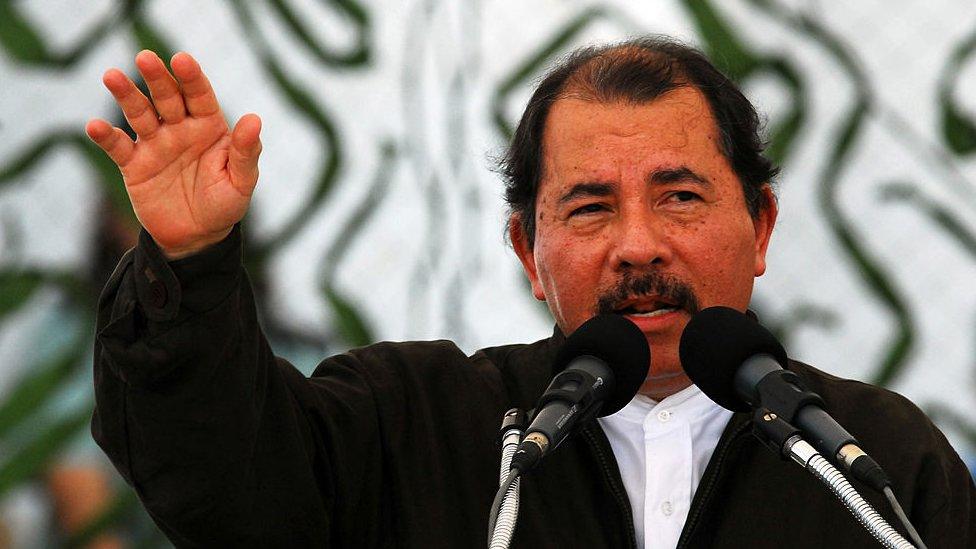
Daniel Ortega is running for his third consecutive term in office
On Sunday, Nicaraguans vote in what critics have dubbed the most one-sided election in the Central American nation since the overthrow of the Somoza family in 1979.
The clear favourite is Daniel Ortega, a former commander of the left-wing Sandinista guerrilla group which toppled the Somoza dynasty.

Who is Daniel Ortega?

Daniel Ortega seems certain of victory
Born in 1946 as the son of a shoemaker
Joined the Sandinista National Liberation Front (FSLN) as a teenager
1984: Elected president
2006: Wins his second presidential election
2011: Wins his third presidential election
2016: Runs for a fourth term

Why is he the favourite?
Opinion polls suggest Mr Ortega, 70, has the support of 60% of voters.
While Mr Ortega has gained popular support through his government's social programmes and pragmatic economic policies, his opponents say he has smothered the opposition.
They accuse him of using the judiciary, electoral authorities and security forces to sideline any challengers.
They also say that by naming his wife, Rosario Murillo, as his running mate, he is in danger of building a political dynasty not unlike the one his Sandinista group overthrew.

What happened to the opposition?
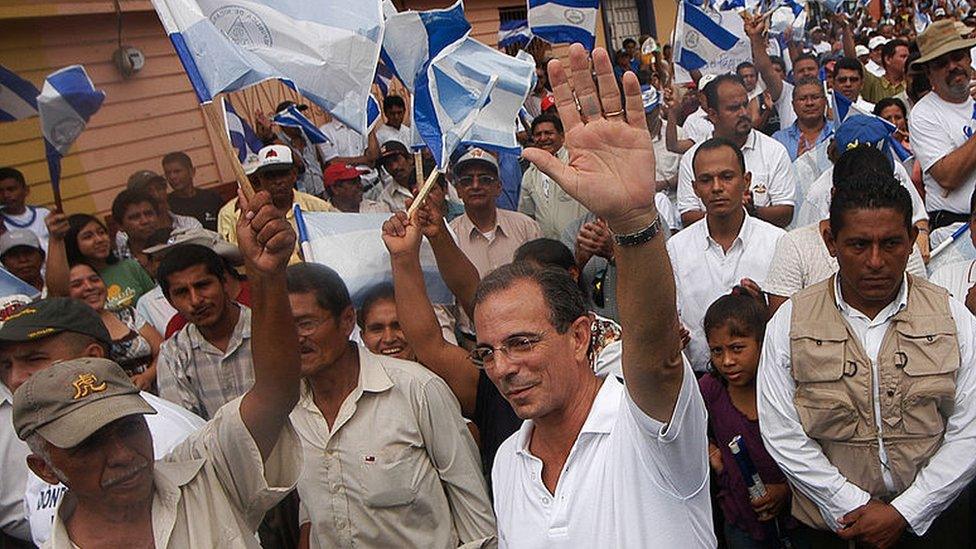
Eduardo Montealegre, head of the Independent Liberal Party, was removed from his post by the constitutional court
One of the most recognisable opposition figures is Eduardo Montealegre of the Independent Liberal Party (PLI), who challenged Mr Ortega in the elections in 2006 and 2011.
Mr Montealegre was banned by the constitutional court from his own party in June in a decision which was widely seen as politically motivated.
The man who replaced him as the PLI's presidential candidate, Luis Callejas, and his running mate, Violeta Granera, were also barred by the court from standing in the presidential poll.
Five other presidential candidates remain on the ballot, all minor figures highly unlikely to present any challenge to Mr Ortega.
Furthermore, PLI lawmakers were stripped of their seats in the National Assembly after they refused to recognise the party's new leader, who they say is close to Mr Ortega.
The move left the National Assembly entirely under the control of Mr Ortega's governing Sandinista Party and its allies.
The opposition denounced the elections as a "farce" and called on citizens not to vote.

Rosario Murillo, the 'power behind the power'
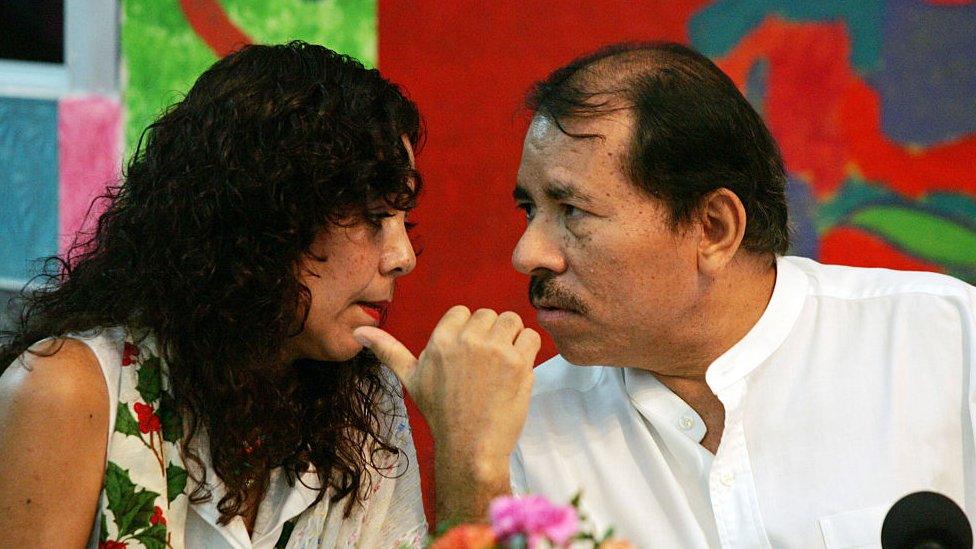
Rosario Murillo is seen as a possible successor to her husband
Mr Ortega's wife, Rosario Murillo, is a powerful political figure in Nicaragua.
A poet, she played a prominent cultural role in the Sandinista Revolution and has gained in prominence since she became the presidential spokeswoman.
In August, Mr Ortega named her as his running mate and candidate for vice-president.
The couple's sons and daughters also occupy key roles in Nicaragua's business, media and security sectors.
Many consider Ms Murillo "the power behind the power".

No international oversight allowed
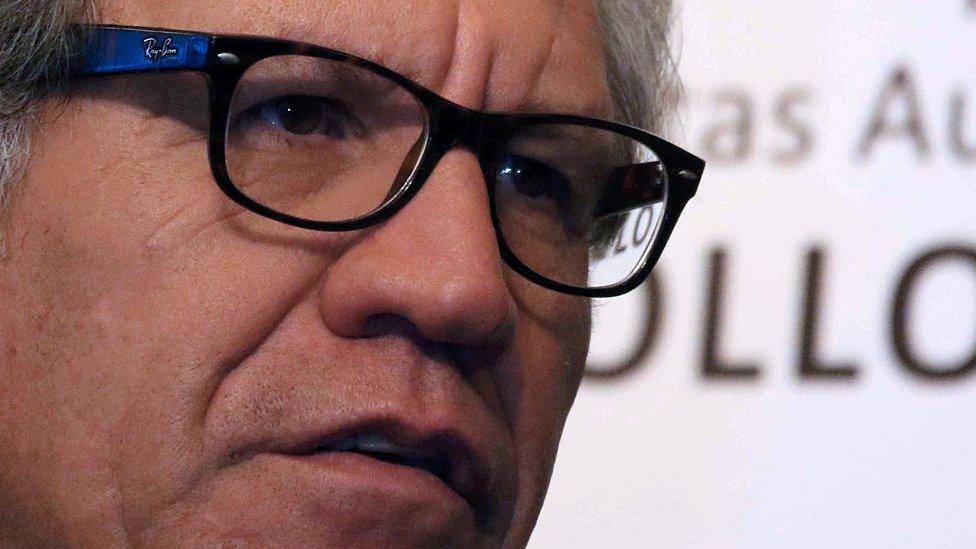
Luis Almagro, the head of the Organisation of American States, will visit Nicaragua after the election
In June, Mr Ortega, invoking "anti-imperialist" nationalism, announced his government would not allow oversight of the elections by foreign electoral observers, a move condemned by critics.
Then in October, the OAS sent a confidential report to the Ortega administration on the electoral process.
Soon afterwards the president accepted having an OAS delegation in the country during the election weekend, but both sides insisted it would not be an "oversight" mission.
Opposition leaders say they will conduct their own "parallel" count of the voting.

Poverty, development challenges
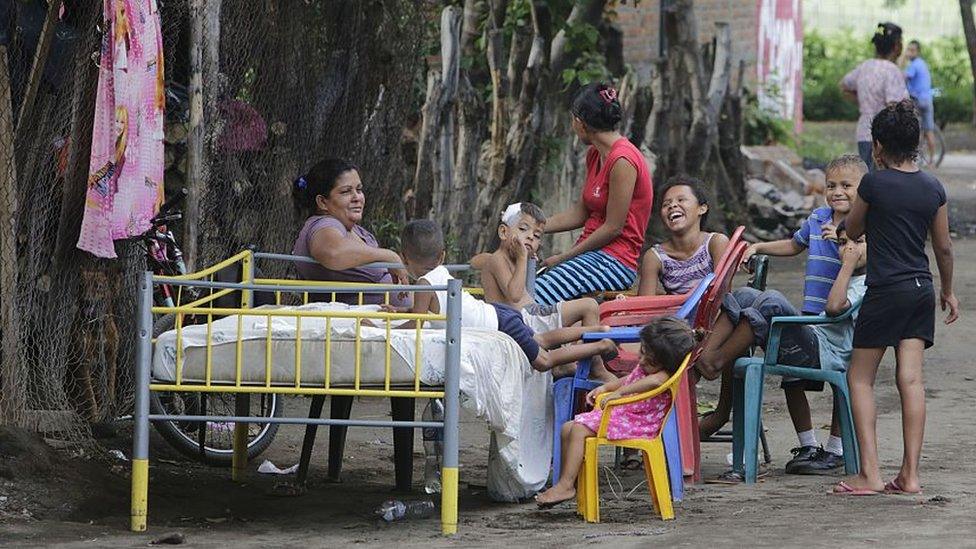
Nicaragua is the second poorest country in the hemisphere, second only to Haiti
With Mr Ortega apparently guaranteed a third term, he still faces the tough task of hauling his country of six million people out of poverty.
His administration has been pragmatic in its economic policies, and Nicaragua's economy has grown at double the Latin America average, but it still needs to attract more foreign investment.
A $50bn plan to build an interoceanic canal across Nicaragua with Chinese investment gained international attention, but there are serious doubts over whether it will ever be built.
The country has been able to avoid the sky-high murder rates of some of its Central American neighbours but it also faces the ever pervasive threat of drug-trafficking.
A high abstention rate on 6 November could signal some popular pushback to Mr Ortega's ambitions, and may lead him to seek greater internal political consensus and smooth international relations.
BBC Monitoring, external reports and analyses news from TV, radio, web and print media around the world. You can follow BBC Monitoring on Twitter , externaland Facebook, external.
- Published31 December 2024
